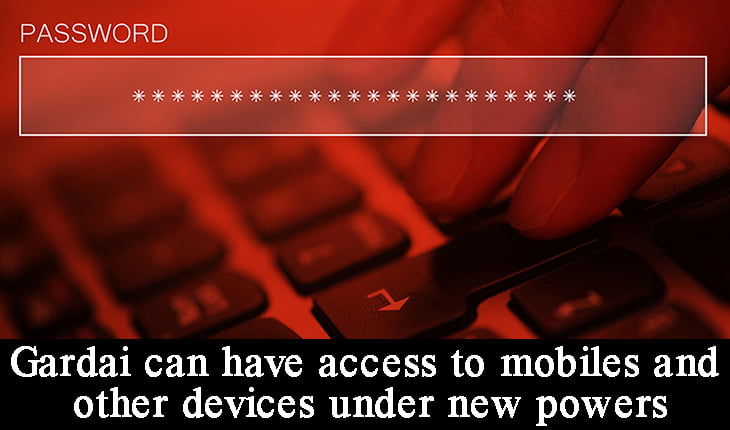Gardai can have access to mobiles and other devices under new powers; refusal to provide password is a criminal offense
DUBLIN: Justice Minister Heather Humphries on Monday announced new legislation that would give the Gardai more powers in the country. According to provisions in the updated Garda Siochana Bill, Gardai can demand passwords for a mobile phone or other devices from anybody as part of a case investigation. Failure to do so will result in criminal charges and prosecution.
The amendment comes in the wake of a rise in online crime in Ireland. Refusing to provide a password to gardai is a criminal punishable by up to five years in prison and a fine of up to €30,000.
Online crime is reported to have increased during the lockdown period. Financial fraud and drug trafficking communications are some of the crimes that take place online. The current law amendment also takes into account the possibility that such crimes would continue even after the lockdown is lifted.
The new Bill also allows gardai to arrest and detain a person until the name and other identity details he provided to gardai are verified. Officers can also stop and search vehicles, with random stops permitted while investigating child abduction or human trafficking cases.
Gardai welcomes the proposed law
Gardai says there is a digital dimension to the investigation of almost every crime currently being reported in the country. They also say that having the right to compel people to hand over passwords will significantly speed up the investigation. It will also assist criminal investigators who are tasked with bypassing passwords and encryptions during investigations.
Privacy concerns
Legal and privacy experts have described the new policing powers bill as “very concerning”.
The chair of Digital Rights Ireland, TJ McIntyre, said the powers apply to all search warrants, meaning gardai can access suspects’ digital devices even for minor investigations.
McIntyre explained that once gardai gain access to a phone or computer, they will also have access to email, bank, and Google drive accounts, as well as encrypted messaging services. “This makes it much more invasive than tradition types of search warrants,” he said.
“It is very concerning, there are huge powers being created here,” said Dr Vicky Conway, associate professor of law at Dublin City University. “The general power of arrest without charge is being expanded massively, there is a power of detention for stop and search, and a very broad power of seizure of items upon arrest,” he added.
Kindly click the link below to join WhatsApp group chat to get important news and breaking news from Irish Samachar


Comments are closed.